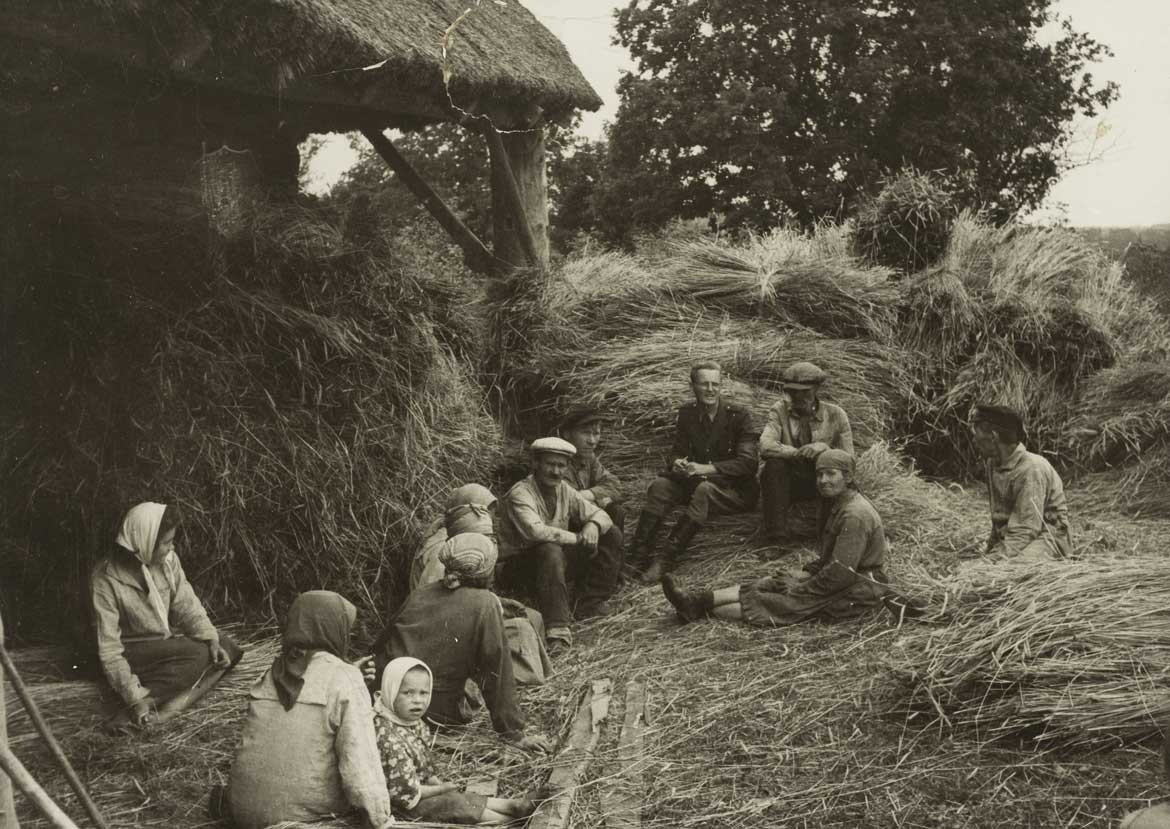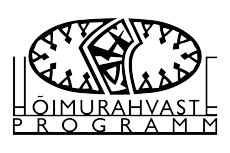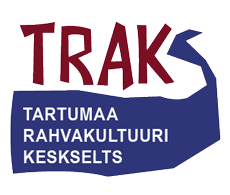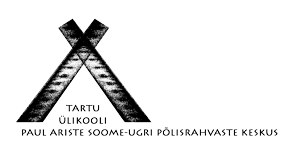Tantsiekka, tammuõni
(Ritual Dance Song)
Minni Oras and choir
In Votian
Tantsiekka, tammuõni,
veere, veerakkaizuõni
rikka’a mehee rihezä,
õlõvaza õvvuõza.
Nii tuli sõna juõlla:
jumal on rikaz rihezä,
looja tarkka taiva’aza,
talopoika vuuvõõ rikaz.
Kui annab jumala vootta,
annab vootta armolliinõ,
vihmavootta, vilĺavootta,
kasõvootta, kagravootta.
Kahzii päitä kazvomaasõ,
kõlmii kõrzii nõisõmaasõ!
In English
Dance, my dear oak tree,
Roll, my companion,
In the granary of a rich man,
In the yard of a wealthy one.
This is how you say it:
God is the rich in the granary,
The Creator is the wise in the heaven,
A peasant is the rich of the year.
When God gives us a year,
When the Merciful gives us a year—
A year of rain, a year of harvest,
A year of dew, a year of oats.
The growth of two grain heads,
The rise of three stalks!
Singers dance in the granary or a closed inner courtyard under the roof and wish that God would bring them good harvest. Such songs were most probably sung on St. Peter’s Day or St. Elijah’s Day. The song has also been sung on St. Nicholas’ feast day in the winter, when women went from house to house and thanked for food. Dancing itself used to be an activity of fertility magic. According to Votian Folk Calendar by Paul Ariste, a village feast was held on the winter St. Nicholas’ Day, December 6, in Savvokkala (Savikino), Suur- and Peen-Rudja (Bol’shoe and Maloe Ruddilovo), also in Kattila (Kotlõ) and Luuditsa (Luzhitsy) (Ariste 1969: 139–140).
T M Oud´e Overa naine, u 50 a, Lempola (Axel August Borenius-Lähteenkorva 1877, SKVR IV3 4699, Rüütel 1977: 238).

People of Mati (Mattiya) village gathered for threshing, posing with Paul Ariste. Photo: E. Laid, 1942 (ERM Fk 1009:258).





